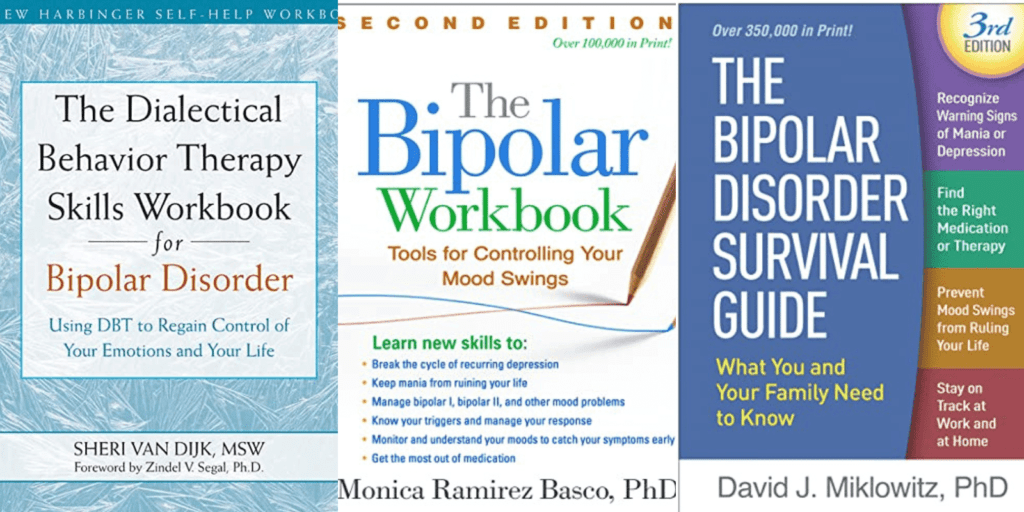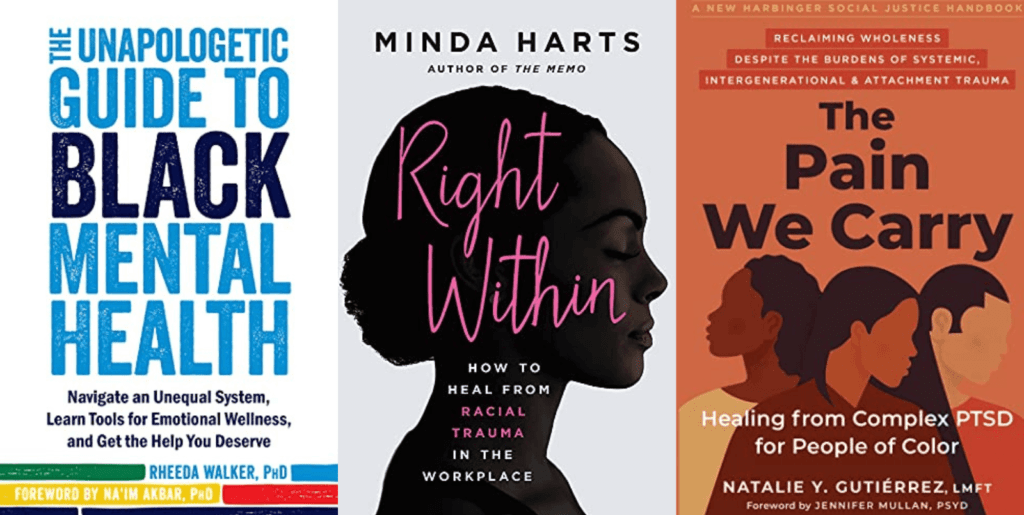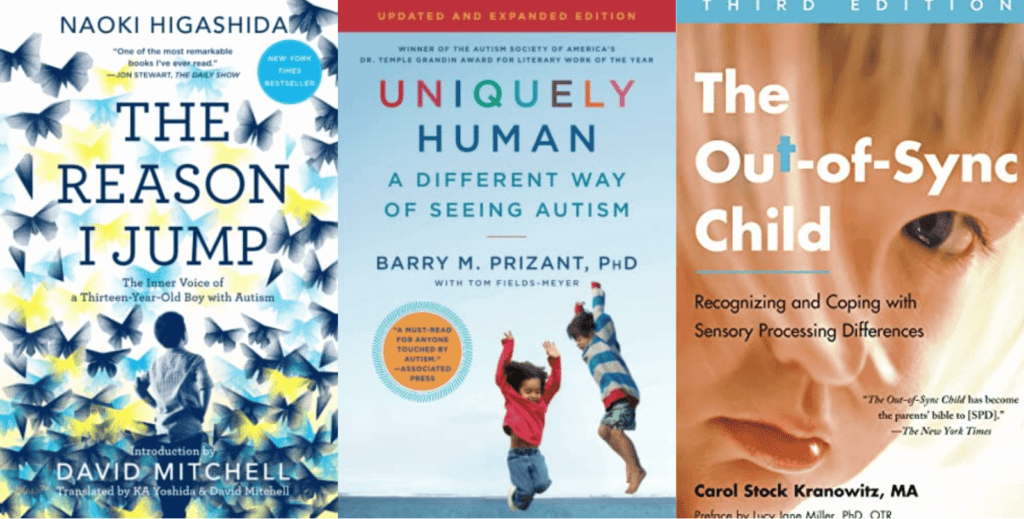The following are some of the best bipolar disorder books to help you embark on your journey.
Disclosure: Some of the links below are affiliate links. This means that, at zero cost to you, I will earn an affiliate commission if you click through the link and finalize a purchase.
What Is Bipolar Disorder?
Bipolar disorder, also known as manic-depressive disorder, is a mental health condition characterized by extreme mood swings.
People with bipolar disorder experience periods of intense emotional highs, known as mania or hypomania, as well as periods of severe depression.
During a manic episode, individuals may feel energetic, and confident. They may have racing thoughts, engage in impulsive behavior, and have a decreased need for sleep.
On the other hand, during a depressive episode, individuals tend to feel depressed, hopeless, and fatigued.
They may have trouble concentrating, experience changes in appetite and sleep patterns, and even have thoughts of self-harm or suicide.
Bipolar disorder can greatly impact a person’s daily life, relationships, and overall well-being.
However, with proper treatment, which often includes a combination of medications, therapy, and support, individuals with bipolar disorder can manage their symptoms and lead fulfilling lives.
It is important to remember that each person’s experience with bipolar disorder is unique, and seeking professional help is crucial for an accurate diagnosis and appropriate treatment plan.
Best Bipolar Disorder Books

1. The Bipolar Disorder Survival Guide
By David J. Miklowitz
Trusted authority Dr. David J. Miklowitz shares proven strategies for managing your illness or supporting a loved one with the disorder. Learn specific steps to cope with mood episodes, reduce recurrences, avoid misdiagnosis, get the most out of treatment, resolve family conflicts, and make lifestyle changes to stay well.
Related: DBT For Bipolar: How To Self-Manage Bipolar Disorder Using Dialectical Behavior Therapy (DBT)?
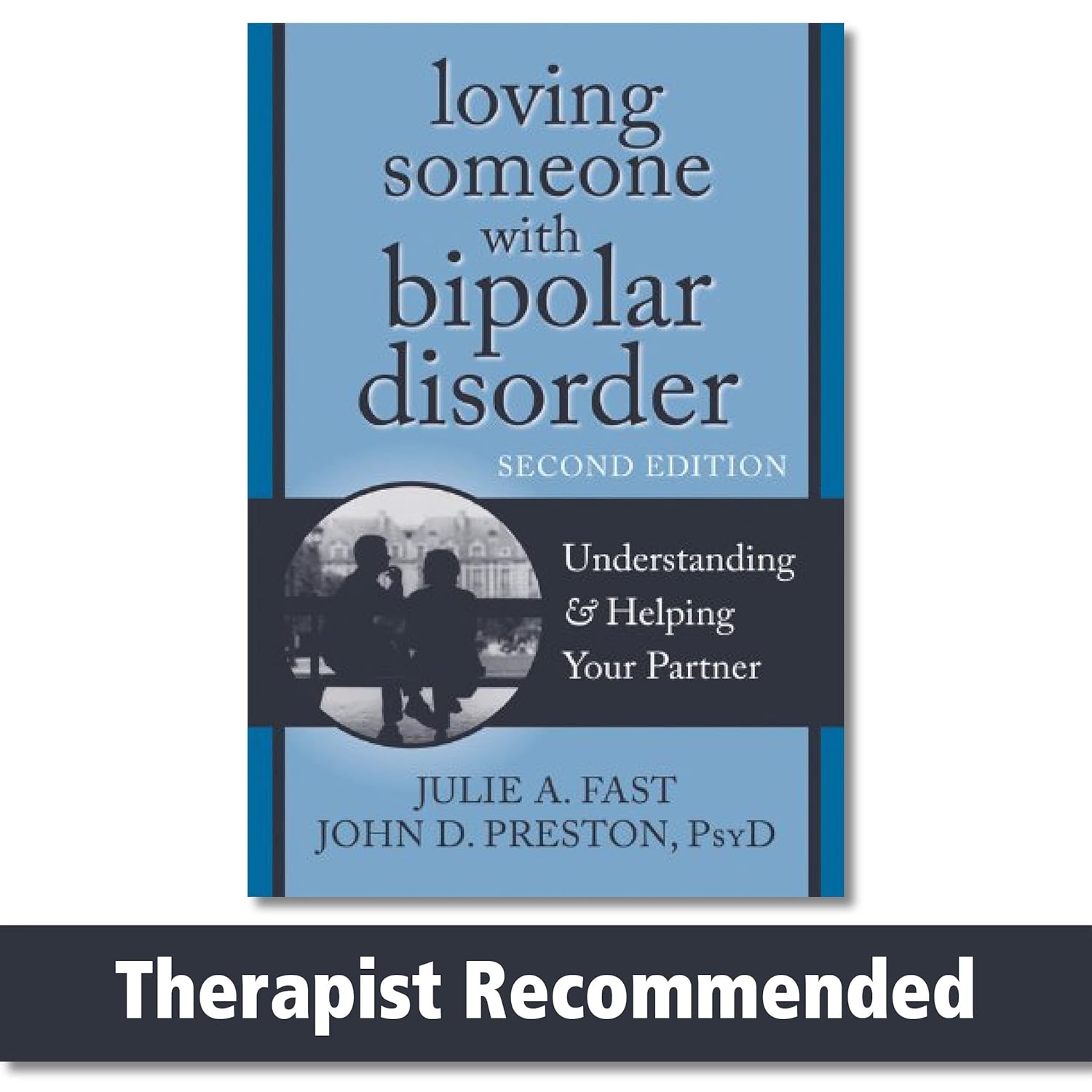
2. Loving Someone with Bipolar Disorder
By Julie A. Fast, John D. Preston
This book will help you create a more balanced, fulfilling relationship.
Improve your relationship by learning how to:
- Identify your partner’s symptom triggers so you can prevent episodes
- Improve communication by stopping irrational “bipolar conversations”
- Handle your partner’s emotional ups and downs
- Foster closeness and connection with your partner
Related: Resources For Bipolar Disorder (Information, APPS, Podcasts, Books)

3. Take Charge of Bipolar Disorder
By Julie A. Fast, John D. Preston
The book guides those with bipolar disorder and their loved ones toward a comprehensive personal treatment plan by incorporating:
- medications and supplements
- lifestyle changes
- behavior modifications
- guidelines on assembling an effective support team.
Related: How To Feel Your Feelings? Top 9 Difficult Emotions To Cope With In Healthy Ways
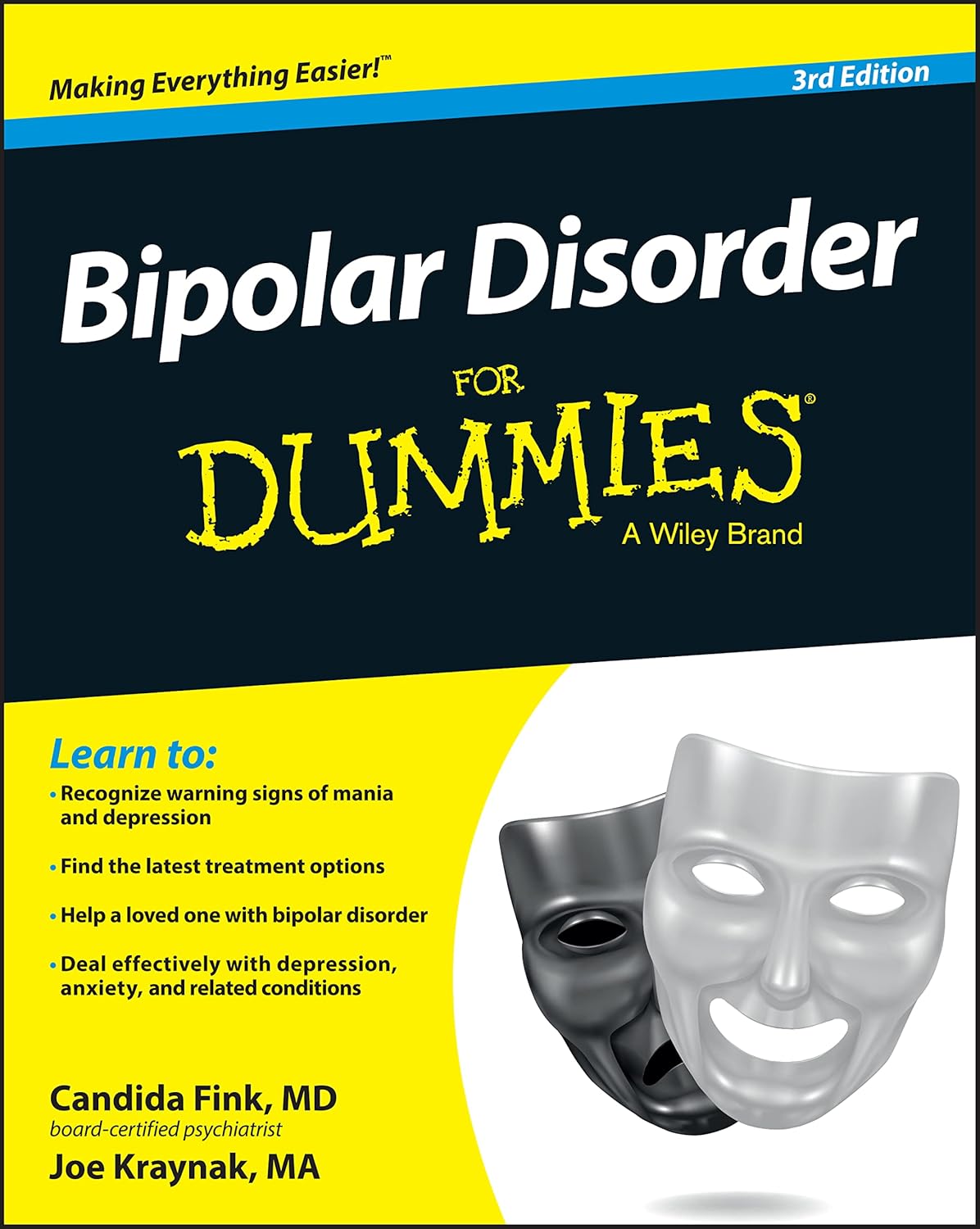
4. Bipolar Disorder For Dummies
By Candida Fink, Joe Kraynak
Bipolar Disorder For Dummies, 3rd Edition offers straightforward, reassuring information about bipolar disorder to help you or your loved one conquer the illness.
- Recognize the warning signs of mania and depression
- Tell the difference between bipolar I, bipolar II, and related conditions
- Discover which medications are best for treating both poles of bipolar disorder–depression and mania–and for treating related conditions, including anxiety
- Find practical strategies for dealing with medication side effects
- Develop communication, problem-solving, and conflict-management skills for preventing and dealing with the interpersonal conflict that often accompanies bipolar disorder
- Find out what you can do to help a loved one with bipolar disorder
Related: Best 99 Coping Skills (+FREE Coping Worksheets)

5. Bipolar, Not So Much
By Chris Aiken MD, James Phelps MD
The authors empower readers to look beyond antidepressants. They walk readers through new medications for the mood spectrum, and offer a guide to non-medication treatments that anyone can use on their own, from diet and lifestyle changes to natural supplements. The book also discusses other innovative technologies that can aid in recovery, including dawn simulators, mood apps, and blue-light filters.
Related: Top 21 Emotional Writing Prompts To Process Emotions

6. Bipolar Disorder
By Francis Mark Mondimore
Winner of the American Book Fest Best Book Award in Health – Psychology/Mental Health by the American Book Fest
Compassionate and comprehensive, Dr. Francis Mondimore’s pathbreaking guide has helped thousands of people and their loved ones cope with bipolar disorder. Now in its fourth edition, Bipolar Disorder has been totally revised and reorganized to reflect dramatic improvements in the treatment of the illness, as well as numerous scientific breakthroughs that have increased our understanding of its causes.
Related: Best 9 Nonfiction Books About Mental Health
Best Bipolar Workbooks
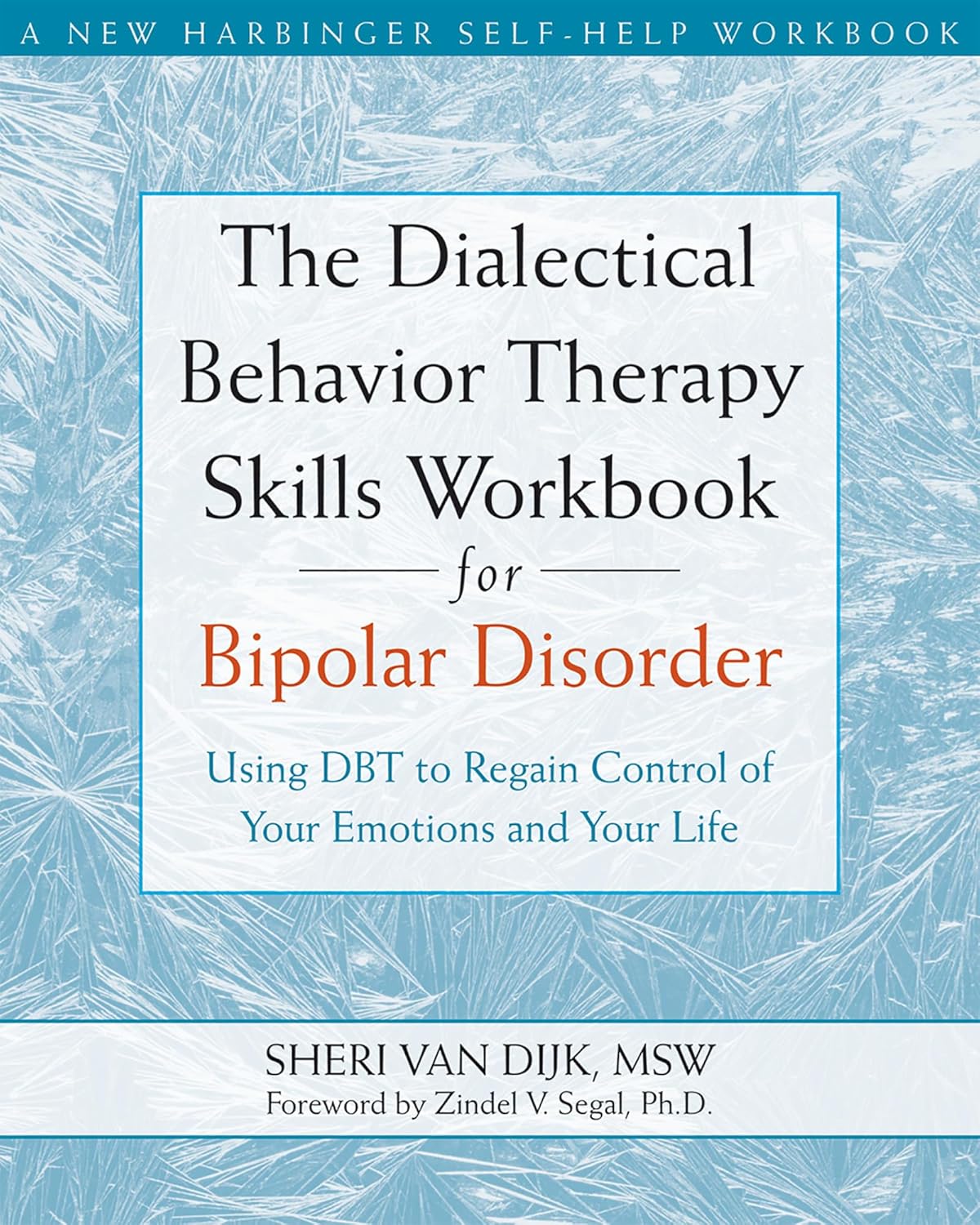
7. The Dialectical Behavior Therapy Skills Workbook for Bipolar Disorder
By Sheri Van Dijk MSW
The Dialectical Behavior Therapy Skills Workbook for Bipolar Disorder will help you integrate your coping skills with a new and effective dialectical behavior therapy (DBT) plan for living well with bipolar disorder.
The four DBT skills you’ll learn in this workbook-mindfulness, distress tolerance, emotion regulation, and interpersonal effectiveness-will help you manage your emotional ups and downs and minimize the frequency and intensity of depressive and manic episodes.
Related: Top 10 Gratitude Exercises To Practice Even When Depressed

8. The Bipolar Workbook
By Monica Ramirez Basco
Leading expert Dr. Monica Ramirez Basco helps you understand the nature of bipolar illness and recognize the early warning signs of mood swings. Step-by-step exercises (you can download and print additional copies of the forms as needed) give you greater insight into your own triggers, vulnerabilities, and strengths.
Related: Journal Prompts For Depression (+FREE Depression Worksheets PDF)

9. The Bipolar II Disorder Workbook
By Stephanie McMurrich Roberts, Louisa Grandin Sylvia, Noreen A. Reilly-Harrington
Written by an extremely accomplished team of bipolar experts, The Bipolar II Disorder Workbook is designed to help you manage the recurring depression, hypomania, and anxiety that can arise as a result of your condition. The convenient workbook format combines evidence-based cognitive behavioral therapy (CBT), dialectical behavioral therapy (DBT), and other mindfulness-based exercises to help you manage your emotions, track your progress, and ultimately live a happy and more productive life.
Related: Resources For Depression (Information, APPS, Podcasts, Books)
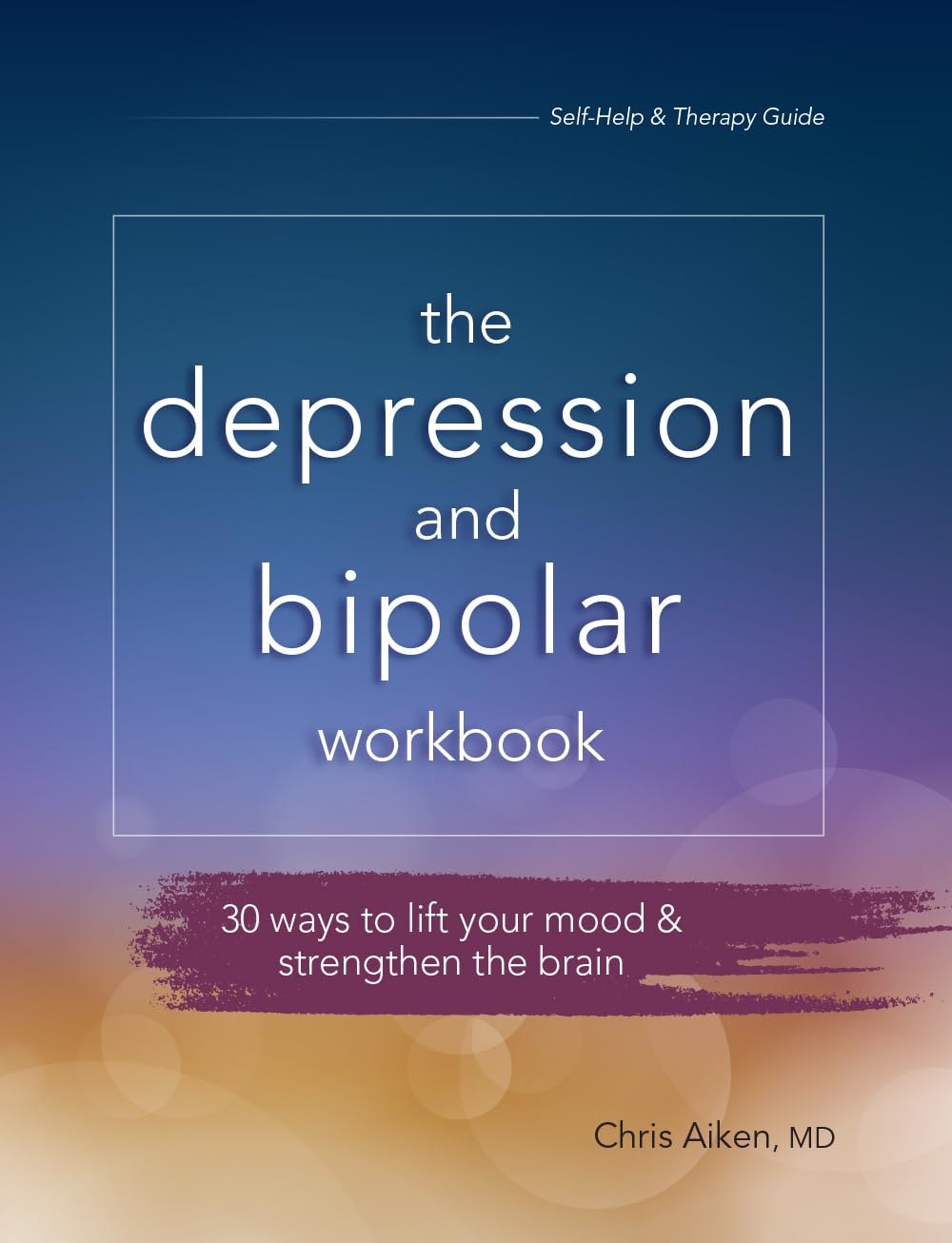
10. The Depression and Bipolar Workbook
By Chris Aiken MD
Written for therapists and clients alike, learn how to recognize unique symptoms of depression and bipolar and match them with the latest advances in CBT, light and dark therapy, diet and sleep techniques, and strategies to fix out-of-sync biological clocks. This is the mood-disorder aid clients have been waiting for.
How Bipolar Disorder Books Can Help
Bipolar disorder books can be incredibly helpful in several ways. Here are a few ways they can benefit individuals with bipolar disorder:
1. Education and Understanding: Bipolar disorder books provide valuable information about the condition, including its symptoms, causes, and treatment options. They can help individuals gain a better understanding of their own experiences and identify strategies for managing their symptoms.
2. Coping Skills and Strategies: These books often include practical advice and coping skills for managing bipolar disorder. They may provide tips on self-care, stress management, and maintaining a balanced lifestyle. Learning effective strategies can empower individuals to take control of their mental health and improve their overall well-being.
3. Personal Stories and Inspiration: Many bipolar disorder books feature personal narratives from individuals who have lived with the condition. These stories can offer a sense of validation and inspiration, reminding individuals that they are not alone in their journey. Reading about others’ experiences and triumphs can serve as a source of hope and motivation.
4. Communication and Relationships: Books that focus on bipolar disorder and relationships can be particularly helpful for individuals who want to improve their communication and navigate their relationships more effectively. They may offer guidance for discussing the condition with loved ones and provide insights into maintaining healthy relationships despite the challenges posed by bipolar disorder.
5. Support and Validation: Sometimes, individuals with bipolar disorder may feel isolated or misunderstood. Bipolar disorder books can provide a sense of validation, assuring individuals that their experiences are real and that their emotions and struggles are valid. Knowing that others have gone through similar experiences can foster a sense of belonging and support.
Conclusion
Books should not replace professional help, but they can complement therapy, medication, and other treatment methods for bipolar disorder.
If you or someone you know is dealing with bipolar disorder, it is always advisable to consult with a mental health professional for personalized guidance and support.
